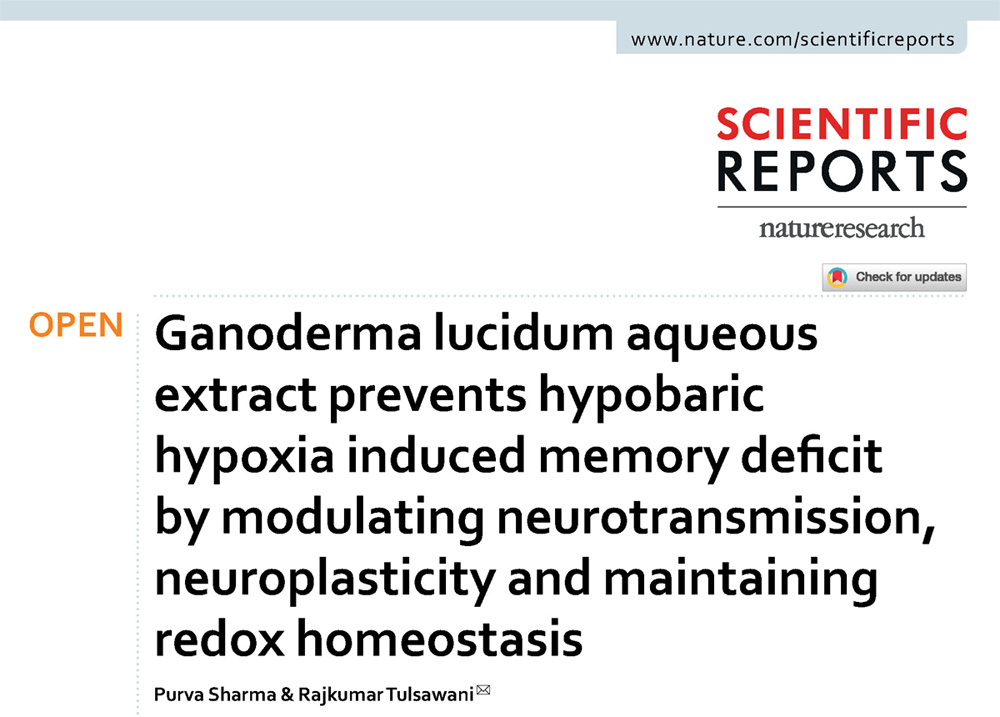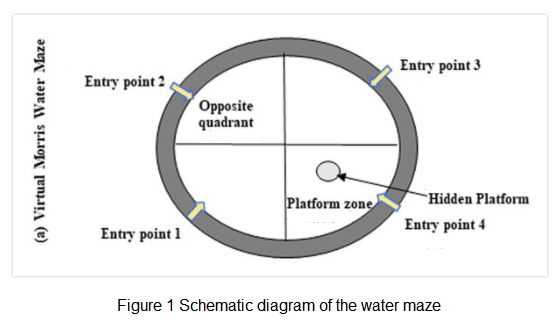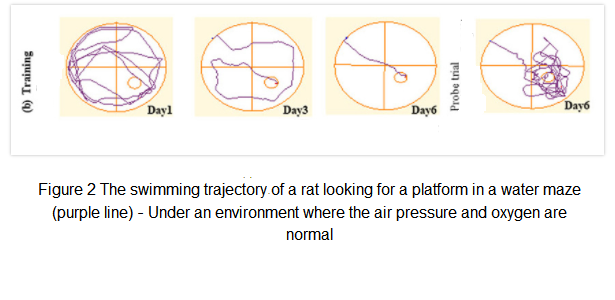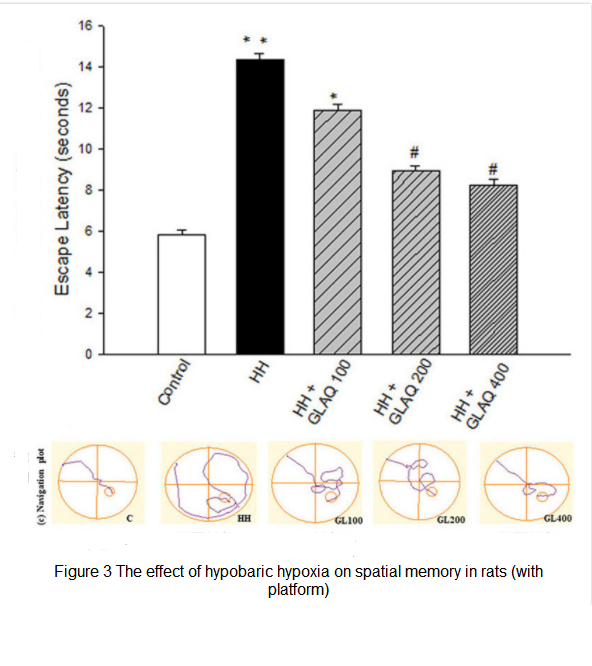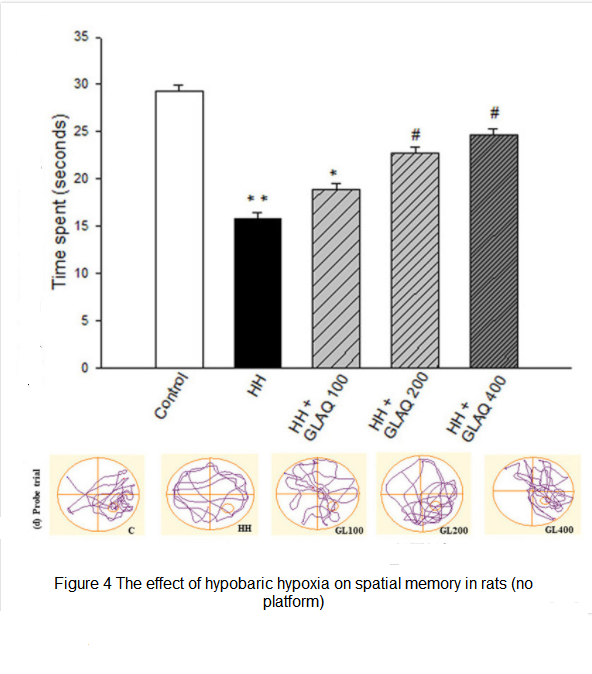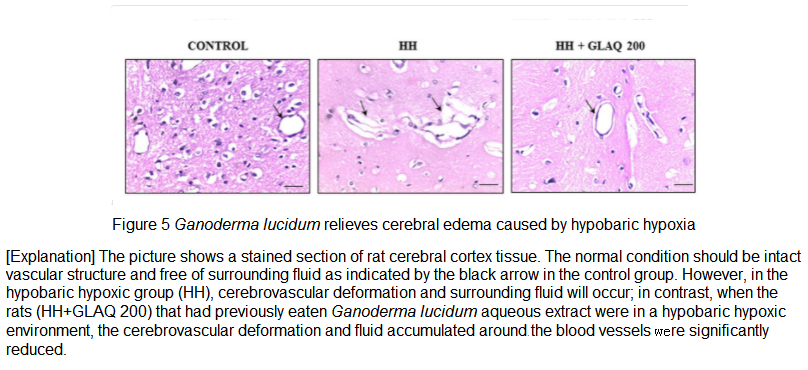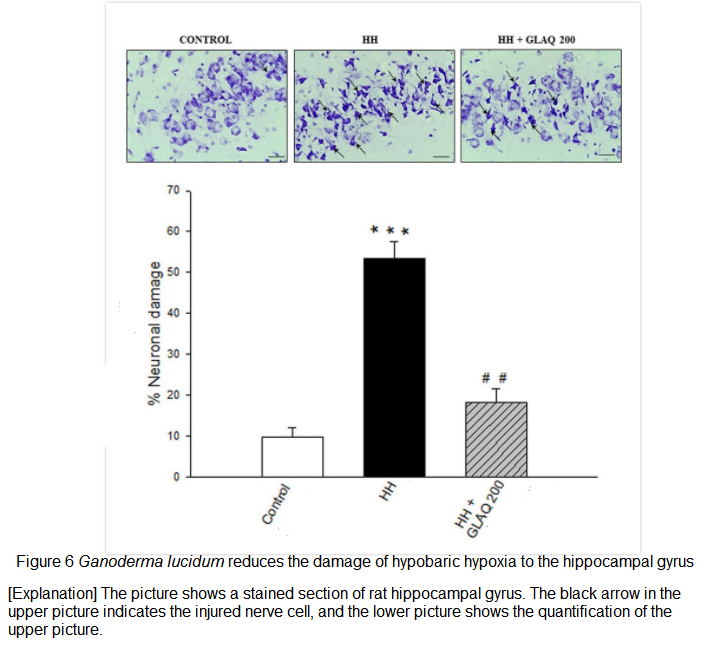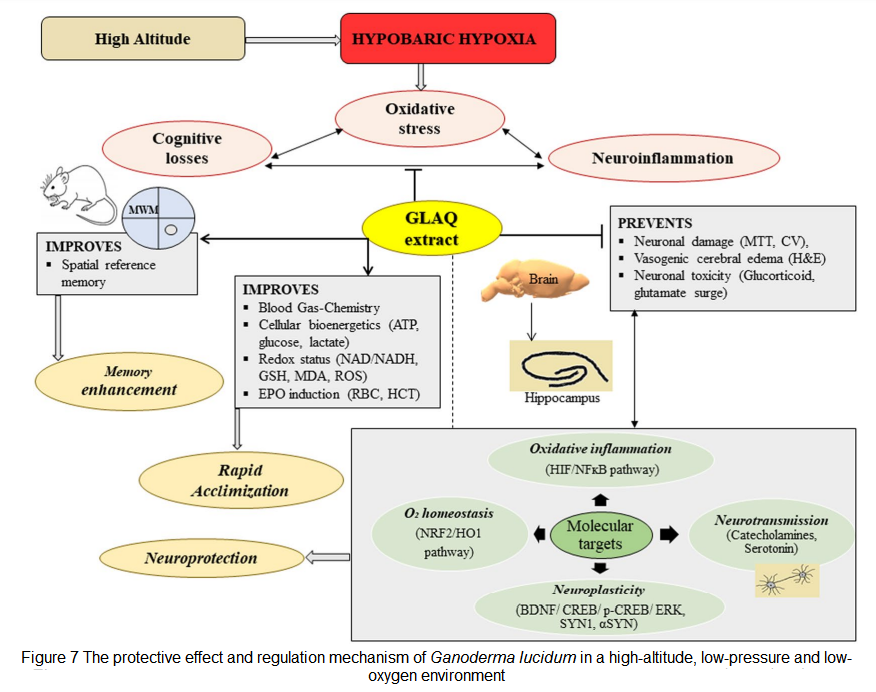India: GLAQ prevents hypobaric hypoxia induced memory deficit
June 2, 2020/Defence Institute of Physiology & Allied Sciences (India)/Scientific Reports
Text/Wu Tingyao
The higher the altitude, the lower the air pressure, the more dilute the oxygen, the more affected the operation of physiological functions, the more likely it is to cause various health risks commonly known as altitude sickness.
These health risks can be just headaches, dizziness, nausea, vomiting, fatigue and other discomforts, and they can also develop into cerebral edema that affects cognition, motor, and consciousness functions, or pulmonary edema that affects respiratory function. How serious is the situation? Whether it can gradually recover after a rest or whether it will further deteriorate into irreversible damage or even become life-threatening depends on the ability of tissue cells in the body to adjust to changes in external oxygen concentration.
The occurrence and severity of altitude sickness vary from person to person, and it is most affected by the individual’s physical fitness. In principle, altitudes above 1,500 meters (medium altitude) will begin to affect the human body; anyone including healthy adults who rashly reaches an altitude of 2,500 meters or more (high altitude) before the body adapts is prone to problems.
Whether it is careful planning of climbing heights or taking preventive drugs before departure, the purpose is to improve the body’s adaptability and prevent the occurrence of altitude sickness. But in fact, there is another option, that is taking Ganoderma lucidum.
According to a study published by the Defence Institute of Physiology and Allied Sciences (DIPAS) in June 2020 in the Scientific Reports, it was found that Ganoderma lucidum aqueous extract (GLAQ) can reduce the damage of hypobaric hypoxia to cranial nerves and maintain the cognitive functions related to spatial memory.
Water maze - a good way to test the memory ability of rats
Before the experiment started, the researchers spent a few days training the rats to find a hidden platform submerged just below the water surface. (Figure 1).
Rats are good at swimming, but they don’t like water, so they will try to find a place to avoid water.
According to the swimming trajectory record in Figure 2, it can be found that the rats found the platform faster and faster from going around several times on the first day to the straight line on the sixth day (right third in Figure 2), showing that it has a good spatial memory ability.
After the platform was removed, the rat’s swimming path concentrated in the area where the platform was located (the first right in Figure 2), indicating that the rat did have a clear memory of where the platform was located.
Ganoderma lucidum alleviates the effects of hypobaric hypoxia on spatial memory
These trained normal rats were divided into two groups. One group continued to live in an environment with normal air pressure and oxygen as the control group (Control) while the other group was sent to a low-pressure chamber to simulate a living at an ultra-high altitude of 25,000 feet or about 7620 meters in an environment of hypobaric hypoxia (HH).
For rats sent to the low-pressure chamber, one part of them were fed with aqueous extract of Ganoderma lucidum (GLAQ) at a daily dose of 100, 200, or 400 mg/kg (HH+GLAQ 100, 200, or 400) while the other part of them were not fed with Ganoderma lucidum (HH group) as a control group.
This experiment lasted for a week. The day after the experiment ended, the five groups of rats were put in the water maze to see if they remembered the position of the platform. The result was shown in Figure 3:
The control group (Control) still remembered the location of the platform clearly and could find the platform at once; the memory ability of low-pressure chamber rats (HH) was significantly impaired, and their time to find the platform was more than twice that of the control group. But also living in the low-oxygen environment of the low-pressure chamber, the rats that ate the GLAQ had a significantly better memory of the platform, and the more Ganoderma lucidum they ate, the time spent was closer to that of the normal control group.
Ganoderma lucidum alleviates the effects of hypobaric hypoxia on spatial memory
These trained normal rats were divided into two groups. One group continued to live in an environment with normal air pressure and oxygen as the control group (Control) while the other group was sent to a low-pressure chamber to simulate a living at an ultra-high altitude of 25,000 feet or about 7620 meters in an environment of hypobaric hypoxia (HH).
For rats sent to the low-pressure chamber, one part of them were fed with aqueous extract of Ganoderma lucidum (GLAQ) at a daily dose of 100, 200, or 400 mg/kg (HH+GLAQ 100, 200, or 400) while the other part of them were not fed with Ganoderma lucidum (HH group) as a control group.
This experiment lasted for a week. The day after the experiment ended, the five groups of rats were put in the water maze to see if they remembered the position of the platform. The result was shown in Figure 3:
The control group (Control) still remembered the location of the platform clearly and could find the platform at once; the memory ability of low-pressure chamber rats (HH) was significantly impaired, and their time to find the platform was more than twice that of the control group. But also living in the low-oxygen environment of the low-pressure chamber, the rats that ate the GLAQ had a significantly better memory of the platform, and the more Ganoderma lucidum they ate, the time spent was closer to that of the normal control group.
Ganoderma lucidum protects the brain and reduces brain edema and hippocampal gyrus damage.
The above experimental results show that Ganoderma lucidum can indeed alleviate the spatial memory disorder caused by hypobaric hypoxia. Memory function is a manifestation of whether the structure and operation of the brain are normal. Therefore, the researchers further dissected and analyzed the brain tissues of the experimental rats, and found that:
Hypobaric hypoxia can cause angioedema (increased permeability of capillaries allows a large amount of fluid to leak from blood vessels and accumulate in the interstitial spaces of the brain) and hippocampal gyrus (in charge of memory formation) damage, but these problems are relieved a lot on the rats that were fed with GLAQ in advance (Figure 5 and 6), indicating that Ganoderma lucidum has the effect of protecting the brain.
The mechanism of Ganoderma lucidum against hypobaric hypoxia
Why the Ganoderma lucidum aqueous extract can withstand the damage caused by hypobaric hypoxia? The results of further in-depth discussion are summarized in Figure 7. There are basically two general directions:
On the one hand, the body’s physiological response when adapting to hypobaric hypoxia will be adjusted faster and better due to the intervention of Ganoderma lucidum; on the other hand, Ganoderma lucidum can directly regulate related molecules in the brain nerve cells by anti-oxidation and anti-inflammation, maintaining constant oxygen in the body, adjusting the brain’s neural circuits, and maintaining smooth nerve transmission so as to protect the nerve tissue and memory ability.
In the past, many studies have pointed out that Ganoderma lucidum can protect brain nerves from various aspects such as Alzheimer’s disease, Parkinson’s disease, epilepsy, vascular embolism, accidental brain injury, and aging. Now this research from India adds another proof of Ganoderma lucidum‘s “enhancing wisdom and memory” from the perspective of high altitude, low pressure and low oxygen.
In particular, the research unit Defence Institute of Physiology & Allied Sciences (DIPAS) is affiliated to the National Defense Research and Development Organization (DRDO) of the Indian Ministry of Defense. It has made in-depth explorations in the field of high altitude physiology for a long time. How to improve soldiers’ adaptability and combat effectiveness to high-altitude environments and pressures has always been the focus of its attention. This makes the results of this research more meaningful.
The active ingredients contained in the Ganoderma lucidum aqueous extract GLAQ used in this study include polysaccharides, phenols, flavonoids, and ganoderic acid A. Before publishing this study, the researcher had done a 90-day subchronic toxicity test of the extract and confirmed that even if its dose is as high as 1000 mg/kg, it will not have a negative impact on the tissues, organs and growth of rats. Therefore, the minimum effective dose of 200 mg/kg in the above experiment is obviously safe.
Only when you are fully prepared can you enjoy the fun of climbing and experience the touch of being close to the skyline. If you have safe Ganoderma lucidum to cheer you up, you should be able to realize your wishes more safely.
[Source]
1. Purva Sharma, Rajkumar Tulsawani. Ganoderma lucidum aqueous extract prevents hypobaric hypoxia induced memory deficit bymodulating neurotransmission, neuroplasticity and maintaining redox homeostasis. Sci Rep. 2020; 10: 8944. Published online 2020 Jun 2.
2. Purva Sharma, et al. Pharmacological effects of Ganoderma lucidum extract against high-altitude stressors and its subchronic toxicity assessment. J Food Biochem. 2019 Dec;43(12):e13081.
END
About the author/ Ms. Wu Tingyao
Wu Tingyao has been reporting on first-hand Ganoderma information since 1999. She is the author of Healing with Ganoderma (published in The People’s Medical Publishing House in April 2017).
★ This article is published under the exclusive authorization of the author. ★ The above works cannot be reproduced, excerpted or used in other ways without the authorization of the author. ★ For violations of the above statement, the author will pursue relevant legal responsibilities. ★ The original text of this article was written in Chinese by Wu Tingyao and translated into English by Alfred Liu. If there is any discrepancy between the translation (English) and the original (Chinese), the original Chinese shall prevail. If readers have any questions, please contact the original author, Ms. Wu Tingyao.
Post time: Nov-24-2021
